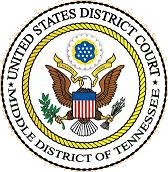User:DanCrankshaw
O'Kroley v Fastcase Inc Draft[edit]
| This article was the subject of an educational assignment in Spring 2015. Further details were available on the "Education Program:University of California, Berkeley/Cyberlaw (Spring 2015)" page, which is now unavailable on the wiki. |
| O'Kroley v. Fastcase Inc. | |
|---|---|
 | |
| Court | United States District Court for the Middle District of Tennessee |
| Full case name | Colin O'Kroley, Plaintiff, v. Fastcase Inc, Google, Texas Office of Court Administration, 11th Court Appeals, Yasni.com, Defendants. |
| Decided | June 25, 2014 |
| Court membership | |
| Judge(s) sitting | Todd J. Campbell |
| Case opinions | |
| https://scholar.google.com/scholar_case?case=17374093310346755005&hl=en&as_sdt=6&as_vis=1&oi=scholarr | |
Lead[edit]
O'Kroley v. Fastcase (case citation) is a 2014 case concerning online defamation in search results. The plaintiff, Colin O'Kroley, alleged that Google's automated snippet algorithm created a defamatory search result by falsely implying that the plaintiff had been accused of indecency with a child, despite the full text not being defamatory. The court granted Google's motion to dismiss the case, and found that Google had immunity from the defamation charges under section 230 of the Communications Decency Act, which protects interactive computer services from being held liable as a speaker or publisher for information provided by a third-party information content provider.
Facts[edit]
The plaintiff, Colin O'Kroley, performed a Google search of his own name in August of 2012. Among the search results was an entry that included the snippet:
Texas Advance Sheet March 2012 — Google Books Result books.google.com/books?id=kO1rxn9COwsC. . . Fastcase — 2012. . .indecency with a child in Trial Court Cause N . . . Colin O'Kroley v. Pringle. (Tex. App., 2012). MEMORANDUM OPINION On February 9, 2012, Colin O'Kroley filed in.
This snippet was generated by a Google algorithm, summarizing an ebook page from Fastcase Inc. The defendant alleged that despite the underlying source document not containing any defamatory statements, the action of summarizing the document created defamatory statements. Google's algorithm removed the context in of the O'Kroley v. Pringle and created an implicit association between a case involving indecency with a child and the O'Kroley lawsuit when in reality there was no relation other than being published on the same page of court case summaries. The plaintiff claimed several causes of action stemming from this summarized search result.
Google's Motion to Dismiss[edit]
Google subsequently filed a motion to dismiss for failure to state a claim under Rule 12(b)(6) of the Federal Rules of Civil Procedure. Under this motion, while the court must accept all well-pleaded factual allegations as true, the complaint must be more than "a formulaic recitation of the elements of a cause of action" as determined in Bell Atlantic Corp. v. Twombly.
Google argued that under Section 230 of the Communications Decency Act, as in "interactive service provider" it has immunity from the plaintiff's complaint. Under the statute, if Google satisfies the requirements for being an interactive computer service, then it has immunity for acting as a publisher of information provided by a third-party. O'Kroley argues that the act of summarizing a non-defamatory article into a defamatory summary created new content and turned Google into an information content provider and thus losing its protected status. However, courts have found the immunities provided under the statute as "quite robust." The magistrate judge reviewing the case found that Google's automated editing and summarization process falls under the role of a publisher and thus Google has immunity from liability. Based on this conclusion, the district judge upheld the magistrate's recommendation and granted Google's motion to dismiss the complaint.
See also[edit]
O'Kroley v Fastcase Inc Bibliography[edit]
Initial complaint[1]
Report and Recommendation[2]
Dismissal Order[3]
Goldman article[4]
- ^ "COLIN O'KROLEY vs FASTCASE INC, GOOGLE, TEXAS OFFICE OF COURT ADMINISTRATION, 11th COURT OF APPEALS, YASNI.COM". Retrieved 12 February 2015.
- ^ "COLIN O'KROLEY, Plaintiff, v. FASTCASE INC, GOOGLE, TEXAS OFFICE OF COURT ADMINISTRATION, 11TH COURT APPEALS, YASNI.COM, Defendants". Retrieved 13 February 2015.
- ^ "COLIN O'KROLEY, v. FASTCASE INC., et al". Retrieved 13 February 2015.
- ^ Goldman, Eric. "Want To Scrub Google Search Results In The US? Tough–O'Kroley v. Fastcase". http://blog.ericgoldman.org/. Retrieved 12 February 2015.
{{cite web}}: External link in|website=
